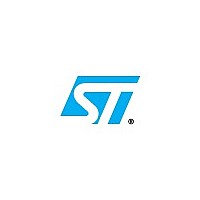STM32L151VD STMicroelectronics, STM32L151VD Datasheet - Page 24

STM32L151VD
Manufacturer Part Number
STM32L151VD
Description
Ultra-low-power ARM Cortex-M3 MCU with 384 Kbytes Flash, 32 MHz CPU, LCD, USB, 3xOp-amp
Manufacturer
STMicroelectronics
Datasheet
1.STM32L151QD.pdf
(121 pages)
Specifications of STM32L151VD
Operating Power Supply Range
1.65 V to 3.6 V (without BOR) or 1.8 V to 3.6 V
7 Modes
Sleep, Low-power run (11 μA at 32 kHz) , Low-power sleep (4.4 μA), Stop with RTC, Stop (650 nA), Standby with RTC, Standby (300 nA)
Ultralow Leakage Per I/o
50 nA max
Fast Wakeup Time From Stop
8 μs
Core
ARM 32-bit Cortex™-M3 CPU
Dma
12-channel DMA controller
11 Timers
one 32-bit and six 16-bit general-purpose timers, two 16-bit basic timers, two watchdog timers (independent and window)
Available stocks
Company
Part Number
Manufacturer
Quantity
Price
Company:
Part Number:
STM32L151VDT6
Manufacturer:
ST
Quantity:
1 000
Company:
Part Number:
STM32L151VDT6
Manufacturer:
STMicroelectronics
Quantity:
10 000
Functional overview
3.17.1
3.17.2
3.17.3
3.17.4
24/121
General-purpose timers (TIM2, TIM3, TIM4, TIM5, TIM9, TIM10 and
TIM11)
There are six synchronizable general-purpose timers embedded in the STM32L15xxD
devices (see
TIM2, TIM3, TIM4, TIM5
TIM2, TIM3, TIM4 are based on 16-bit auto-reload up/down counter. TIM5 is based on a 32-
bit auto-reload up/down counter. They include a 16-bit prescaler. They feature 4
independent channels each for input capture/output compare, PWM or one-pulse mode
output. This gives up to 16 input captures/output compares/PWMs on the largest packages.
The TIM2, TIM3, TIM4, TIM5 general-purpose timers can work together or with the TIM10,
TIM11 and TIM9 general-purpose timers via the Timer Link feature for synchronization or
event chaining. Their counter can be frozen in debug mode. Any of the general-purpose
timers can be used to generate PWM outputs.
TIM2, TIM3, TIM4, TIM5 all have independent DMA request generation.
These timers are capable of handling quadrature (incremental) encoder signals and the
digital outputs from 1 to 3 hall-effect sensors.
TIM10, TIM11 and TIM9
TIM10 and TIM11 are based on a 16-bit auto-reload upcounter. TIM9 is based on a 16-bit
auto-reload up/down counter. They include a 16-bit prescaler. TIM10 and TIM11 feature one
independent channel, whereas TIM9 has two independent channels for input capture/output
compare, PWM or one-pulse mode output. They can be synchronized with the TIM2, TIM3,
TIM4, TIM5 full-featured general-purpose timers.
They can also be used as simple time bases and be clocked by the LSE clock source
(32.768 kHz) to provide time bases independent from the main CPU clock.
Basic timers (TIM6 and TIM7)
These timers are mainly used for DAC trigger generation. They can also be used as generic
16-bit time bases.
SysTick timer
This timer is dedicated to the OS, but could also be used as a standard downcounter. It is
based on a 24-bit downcounter with autoreload capability and a programmable clock
source. It features a maskable system interrupt generation when the counter reaches 0.
Independent watchdog (IWDG)
The independent watchdog is based on a 12-bit downcounter and 8-bit prescaler. It is
clocked from an independent 37 kHz internal RC and, as it operates independently of the
main clock, it can operate in Stop and Standby modes. It can be used either as a watchdog
to reset the device when a problem occurs, or as a free-running timer for application timeout
management. It is hardware- or software-configurable through the option bytes. The counter
can be frozen in debug mode.
Table 3
for differences).
Doc ID 022027 Rev 2
STM32L151xD, STM32L152xD













